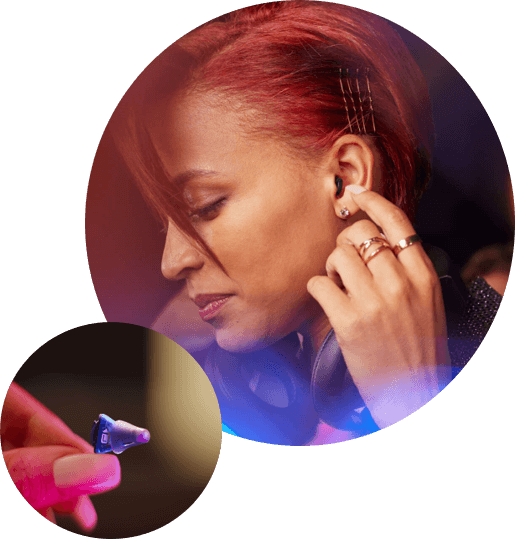Hearing Evaluation

Audiological Assessments
A&A Audiology is a leading provider of comprehensive diagnostic evaluations for adults and children. Our evaluations are the first step in identifying and addressing hearing problems.
Our evaluations include a variety of tests, such as otoscopy, air and bone conduction pure tone audiometry, full immittance testing, otoacoustic emissions, and speech recognition measures. We use special techniques and tests to assess the hearing ability of very young children.
Following the evaluation, your audiologist will present the results and answer any questions you may have. They will also give you recommendations based on the evaluation. If hearing aids or other assistive devices are recommended, we will schedule a hearing aid evaluation appointment.
We understand that hearing loss can be a challenging condition, but we are here to help you every step of the way. Our team of experienced audiologists is dedicated to providing you with the highest quality care.
Immittance Audiometry
Acoustic immittance measures are a set of tests that assess the function of the middle ear and the acoustic reflex pathway. Tympanometry and acoustic reflex thresholds are the most common measures, and they can provide information about the presence of hearing loss, middle ear disorders, and other conditions that affect hearing. Advanced measures, such as multifrequency tympanometry and absorbance/reflectance measures, can provide more detailed information about the function of the middle ear. Acoustic immittance measures are noninvasive and painless, and they can be performed on people of all ages.
Otoacoustic Emmissions
Otoacoustic emissions (OAEs) are sounds produced by the outer hair cells in the cochlea. They can be used to differentiate between cochlear and retrocochlear hearing loss. OAEs are objective and noninvasive and can be used to assess hearing in difficult-to-test populations.
Diagnostic Services
Comprehensive Pediatric and Adult Audiological Assessment
A comprehensive audiological assessment is conducted to determine the presence, type, configuration, and severity of hearing impairment. Routine audiometry is performed, as well as special testing such as immittance, otoacoustic emissions, and speech-in-noise testing. The results of these tests are used to make recommendations for medical intervention, further evaluation, and/or avenues available to improve communication, such as hearing aids or cochlear implants.
Vestibular Assessment
Vestibular services offer a comprehensive battery of tests to evaluate a patient's balance system. Electronystagmography (ENG) and videonystagmography (VNG) are used to record and analyze eye movements, which can help us determine how well the balance system is working. Eye movements can be recorded using electrodes taped around the eyes or by infrared goggles.
Electrophysiological Assessments
Our electrophysiology lab offers a variety of specialized diagnostic tests, including:
These tests are used to assess the function of the auditory and vestibular systems. They can be used to diagnose hearing loss, vestibular disorders, and other neurological conditions.
Auditory Processing Disorder Assessments
Auditory Processing Disorder (APD) assessments are available for children (7 years or older) and adults who may have difficulty attending to, discriminating, recognizing, or comprehending auditory information. Audiology-based assessments are combined with language assessments to provide a comprehensive picture of auditory processing as part of our Language, Listening, and Learning Program.
Electrophysiological Assessments
Electrophysiological measures, such as those procedures listed below, play an important role in the assessment of hearing in difficult to test populations, such as very young children, as well as in the differential diagnosis of cochlear versus retrocochlear disorders. These tests are considered objective in that a behavioral response is not required of the patient. Auditory evoked potentials are very small electrical voltage potentials originating from the brain. They are usually recorded from the scalp in response to an auditory stimulus (i.e., clicks, tones, speech sounds, etc.). Evoked potentials are typically recorded using small disk-like self-adhesive electrodes which are stuck on the head and face. The electrodes do not hurt, and they come off easily after completion of testing. A typical recording requires the placement of three or four electrodes. These tests require the use of highly sensitive amplifiers and computer averaging equipment.
Electrophysiological services available at A&A Audiology
Scheduling
To schedule an appointment, please contact the Clinic.
Additional Resources
Auditory Processing Disorder Assessment

What is an Auditory Processing Disorder?
Auditory processing disorder (APD) is a condition that affects how the brain processes auditory information. People with APD have normal hearing sensitivity and intelligence, but they have difficulty attending to, discriminating, recognizing, and comprehending auditory information. This can make it difficult for them to understand speech in noisy environments, follow spoken instructions, and learn in a traditional classroom setting.
There is no cure for APD, but there are treatments that can help. These treatments may include environmental modifications, management strategies, auditory training, and/or FM assistive listening devices.
If you are concerned that your child or you may have APD, it is important to see an audiologist for an evaluation. An audiologist can assess your hearing and cognitive abilities and determine if you have APD. They can also recommend appropriate treatments.
The prerequisites for an APD evaluation include:
If you meet these prerequisites, you may be eligible for an APD evaluation. An evaluation can help you to understand your condition and develop a treatment plan.
What is an APD evaluation?
Our goal is to provide a multidisciplinary approach to evaluating and managing auditory processing disorders. Therefore, a language assessment is recommended with a Speech-Language pathologist.
Tests from the following behavioral categories are included in the APD evaluation:
A&A HEARING AND BALANCE CLINIC IS LOCATED IN SCOTTSDALE, AZ. TO SCHEDULE AN APPOINTMENT, CLICK HERE
Additional Resources
Have Questions?
Get in touch with us today to get answers to questions or schedule an appointment.
